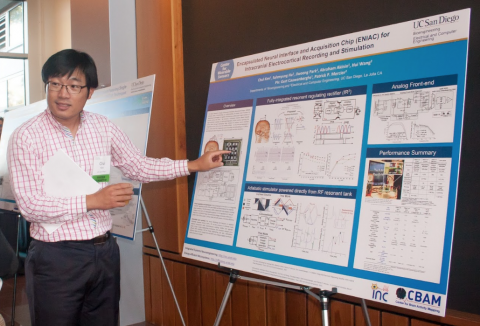Adam Engler
Associate Professor with the Department of Bioengineering
University of California, San Diego
Seminar Information

The human heart isidentification of compensatory remodeling events in the aging heart remains elusive. Here we present the proteomes of rhesus monkeys and rats, from which we show that age-associated remodeling of the cardiomyocyte cytoskeleton is highlycon Drosophila confirms conservation and implicates vinculin as a unique regulator of cardiac aging. Increased cardiac vinculin expression reinforced the cortical cytoskeleton and enhanced myofilament organization, leading to improved contractility, hemodynamic stress tolerance, and lifespan. These findings suggest that the heart has molecular mechanisms to sustain function and longevity which may be assisted by therapeutic intervention.
Adam J. Engler is an Associate Professor of Bioengineering at UC San Diego and a resident scientist at the Sanford Consortium for Regenerative Medicine. Dr. Engler previously trained with Dr. Dennis Discher at the University of Pennsylvania, where he earned his PhD studying how ECM stiffness regulated stem cell fate. He also did a postdoc with Dr. Jean Schwarzbauer at Princeton University's Department of Molecular Biology. His current research focuses on how physical and chemical properties of the niche influence stem cell function and mis-regulate muscle function and heart performance during disease and aging. His lab makes natural and synthetic matrices with unique spatiotemporal properties to mimic niche conditions to improve stem cell behavior and commitment in vitro for their therapeutic use in vivo. His lab also studies these processes in vivo with rapidly aging model systems including Drosophila. Dr. Engler's work has been recognized with awards from the American Society of Mechanical Engineers, the American Society of Matrix Biology, the International Society of Matrix Biology, Biomedical Engineering Society, and National Institutes of Health.
